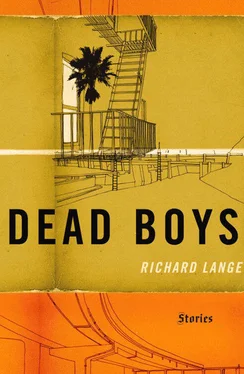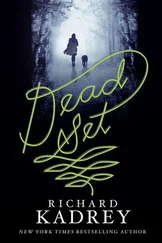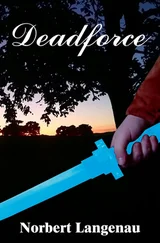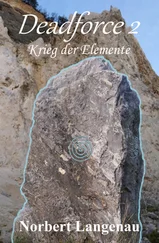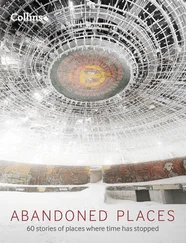Oh, the monkey wrapped his tail around the flagpole
To watch the grass grow
Right up his asshole.
Something like that. Used to crack me up when I was a kid.
Moriarty sets the bag in the bed of my truck and unzips it to show me the sawed-off shotgun inside.
“There’s a box of shells, too,” he says.
“Thanks.”
“Lock it away where the kid can’t get at it. Don’t be stupid.”
“Come on, man.”
“Do you know how to use it? You probably won’t have to, because the sound of the shells sliding into the chamber will send your average burglar packing with a pantload, but just in case?”
“I can’t imagine it’s too difficult.”
Moriarty grins and closes the bag. “Just point and shoot.”
An old lady steps out of his car and shouts, “Stuart, I don’t want to be late.”
“Yeah, Ma, okay,” Moriarty shouts back. “Church,” he says to me with rolling eyes. “See you Thursday.”
“You betcha.”
We shake hands and he jogs to his car. I take another look at the big house above me, and I can’t help it — call it jealousy, Whatever you want, but I can’t help picturing the Big One hitting and the surprise and terror on the owners’ faces when those supports snap like toothpicks and they end up riding that fancy sonofabitch down the hill and through the fence and straight to the bottom of poisonous goddamn Lake Hollywood.
I WAS A wreck when Moriarty happened upon me, so twisted inside that at times I couldn’t even breathe deeply enough to fill my lungs. Driving along the freeway or standing in line at the supermarket I’d find myself gasping for air like an astronaut unmasked on Mars. A year earlier, after my third paycheck in a row had bounced, I’d told the contractor I’d been working for to get fucked and drawn out all of our savings to set myself up as an independent. I didn’t love painting houses, but I figured that in a short while I’d have enough capital to move into buying and renovating neglected properties and reselling them at a profit. Twelve months later, though, I’d only had four jobs, and to get those I had to bid so low that I barely broke even. One beer in the evening turned into three, then six. “What kind of idiot did you marry?” I’d ask Maria, and she’d say something nice, but that’s not what I wanted to hear, so I’d ask again, “What kind of idiot did you marry?” I’d keep asking until I brought her to tears.
Moriarty found me at the unemployment office in Hollywood. I ignored him on his first approach, because everybody there seemed so strung out and crazy, and who knew what this blond bastard with the crooked smile was up to. Just let me fill out my forms and be on my way was my philosophy that morning, but he kept at me, asking to borrow some of my newspaper and following me outside to the catering truck parked at the curb, where we stood eyeing each other through the steam rising from our coffee.
He says he could tell right then that I was the one, but I don’t know how. That first conversation, as I recall it, was nothing more than your standard two strangers shooting the shit kind of thing: a little sports, a little music, and each of us maybe trying a little too hard to convince the other that we were worth more than the three hundred bucks a week we were waiting in line for. In my version it wasn’t until later — when we retreated to a bar to wash the shame of the morning from our craws — that the truth began to come out. When Moriarty wrapped his hands around his beer like he was praying and sighed, “I’ll tell you what, getting by is killing me,” that’s when I first thought we might have something in common.
Turned out we lived in the same part of Hollywood, so we started getting together for drinks once a week or so. Bank robbery was a running joke from the beginning, or at least I took it as a joke. Moriarty would say, “I’m serious,” and I’d laugh and say, “I know you are.” To me it was like, “Hey, let’s make a movie,” or, “Let’s open a pizza place,” one of those shared pipe dreams guys sometimes use as an excuse to keep meeting when they’re too uptight to admit they enjoy each other’s company. You know, “This isn’t just drinking; we’ve got business to discuss.” You get to fantasize together, share your plans for all the money you’re going to make, act a little foolish.
Even when Belushi came into the picture — an old college buddy of Moriarty’s — and Moriarty got into the insurance racket, and we started meeting at his office instead of the bar because he decided we shouldn’t be seen together in public anymore, I still didn’t take it seriously. And how could I? I mean, the three of us — us! — sitting around hefting pistols and discussing timing while studying maps Moriarty had drawn of the various banks he’d cased — it was hilarious. I remember laughing to myself the first time we actually drove out to scout an escape route, because I knew an hour later I was going to be home playing patty-cake with Sam and helping Maria clean the bathroom. That was real life. My life.
So how, then, do I explain what happened next? I don’t. I can’t. BOOM! There I am, standing in one of those same banks on legs that are shaking like a pair of Slinkys. I’ve got a gun in my hand and pantyhose pulled over my head, and when I yell, “Get down on the floor!” you’d think it was the voice of God rumbling out of a thundercloud, the way the customers throw themselves at my feet. I’d always imagined that when you crossed the line you saw it coming, but it turned out to be more like gliding over the equator on the open sea. Don’t let them kid you, it’s nothing momentous, going from that to this.
EL JEFE PHONES early Monday morning with an offer of a few days’ work on a house in Los Feliz. He was a bigwig in the Nicaraguan army until they ran his ass out on a rail after the revolution. Now he’s got a rinky-dink painting business here, with most of his jobs coming through flyers he leaves in mailboxes and under windshield wipers. When white people hire him, he calls me in, because he jacks up his prices for Caucasians and figures they won’t complain as much if some of it is going to a fellow gringo. Besides that, white women feel more comfortable with one of their own around, he says, “to keep an eye on us thieves and rapists.” It’s a hundred tax-free bucks a day, and it’ll keep my mind off the heist.
The house is a big, two-story Spanish-style that we’re taking from dull tan to something slightly darker. It’s me and a couple of short, silent Guatemalan Indians doing the labor, with El Jefe supervising between cigars and chats on his cell phone.
The best thing about painting is that it has a rhythm that allows you to drift away. On this morning I run through our first Christmas in the mountains, tweaking the vision bit by bit until it snaps into perfect focus, right down to the broken-glass sparkle of the new snow, the pop and hiss of the logs burning in the fireplace, and the smell of the tree that Sam and I will cut down and drag home through the wintry woods. It’s such a pretty picture that the sun chewing on the back of my neck doesn’t bother me at all, and I’m almost reluctant to put down my brush and descend the ladder when lunch rolls around.
I get the sandwiches and thermos of lemonade that Maria made for me out of the cooler in the bed of my truck and settle against the shady side of one of the palm trees planted in the strip of grass between the street and the sidewalk. The Guatemalans sit on the curb some distance away, talking quietly as they peel back the foil from their burritos. We haven’t exchanged two words all morning, but that’s the way it goes on these jobs. I think they know why El Jefe brings me around, and I’m not about to stroll over and plop myself down beside them and give them a “we’re all in the same boat” speech, because we’re not, and they know that, too.
Читать дальше
